Transcranial Magnetic Stimulation (TMS) is a non-invasive procedure that uses magnetic fields to stimulate nerve cells in the brain to improve symptoms of depression. One of the most common questions patients have about TMS is whether the treatment is painful. The experience of TMS is generally well-tolerated by most patients. During the procedure, you may feel a tapping sensation on your scalp where the magnetic pulses are applied. This sensation can be slightly uncomfortable for some, but it is not typically described as painful.
For the majority of patients, any discomfort experienced during TMS sessions diminishes after the first few treatments as they become accustomed to the sensation. Some individuals may experience mild side effects such as headaches or scalp discomfort, but these are usually temporary and subside shortly after the session. It’s important to communicate any discomfort to your TMS technician, as they can adjust the settings to enhance your comfort. Overall, TMS is considered a safe and manageable treatment option for those seeking relief from depression without the significant side effects often associated with medications.
What is TMS Used to Treat?
Transcranial Magnetic Stimulation (TMS) is primarily used to treat major depressive disorder (MDD), especially in patients who have not found relief from traditional treatments such as medications and psychotherapy. TMS has been particularly beneficial for individuals who experience treatment-resistant depression, providing an alternative when other options have failed to yield significant improvement. By targeting specific areas of the brain involved in mood regulation, TMS can help alleviate depressive symptoms and improve overall mental well-being.
In addition to depression, TMS is being explored for its potential to treat a variety of other mental health conditions. Research has shown promising results in using TMS for conditions such as anxiety disorders, post-traumatic stress disorder (PTSD), obsessive-compulsive disorder (OCD), and even certain types of chronic pain. While the primary and most well-established use of TMS remains in the treatment of depression, ongoing studies continue to expand its applications, offering hope to patients with various mental health challenges.
Common Side Effects of TMS
Transcranial Magnetic Stimulation (TMS) is generally well-tolerated and considered safe, but like any medical treatment, it can have side effects. Most side effects are mild to moderate and diminish shortly after the session. Understanding these potential side effects can help patients prepare for their TMS treatment and know what to expect.
Common side effects of TMS include:
- Headaches
- Scalp discomfort at the treatment site
- Tingling or spasms in facial muscles
- Lightheadedness
While these side effects are typically short-lived, it is important for patients to communicate any discomfort or concerns to their TMS technician. This allows for adjustments in treatment settings to improve comfort. Serious side effects are rare, but patients should always discuss their full medical history with their provider to ensure TMS is a safe option for them. Overall, the benefits of TMS in treating conditions like depression often outweigh the temporary discomforts, providing a valuable therapeutic option for many individuals.
How Long Do TMS Side Effects Last?
The side effects of Transcranial Magnetic Stimulation (TMS) are typically mild and short-lived. Most patients experience these effects during or immediately after their treatment sessions. Common side effects, such as headaches and scalp discomfort, usually subside within a few hours after the session. In some cases, patients may experience mild tingling or muscle spasms during the treatment, which also dissipate shortly after the session ends.
For those who experience side effects, the intensity often decreases as they progress through their treatment course. As the body becomes accustomed to the magnetic pulses, the discomfort tends to lessen. It’s important for patients to communicate with their TMS technician if they experience any persistent or severe side effects, as adjustments can often be made to improve comfort. Overall, the transient nature of TMS side effects makes the treatment a manageable and effective option for many individuals seeking relief from conditions like depression.
What Should I Do If I Feel Discomfort During TMS?
If you feel discomfort during a Transcranial Magnetic Stimulation (TMS) session, it is important to communicate this to your TMS technician immediately. Open communication ensures that your treatment is as comfortable and effective as possible. Your technician can make adjustments to the intensity and positioning of the magnetic pulses to reduce discomfort. Often, small modifications can significantly enhance your comfort without compromising the effectiveness of the treatment. Here are a couple effective strategies that can help you minimize your discomfort during your TMS sessions.
Over-the-Counter Pain Relief
Taking over-the-counter pain relief medications, such as ibuprofen or acetaminophen, before your session can help mitigate headaches or scalp discomfort. This simple step can make a significant difference in your overall comfort during and after the treatment.
Stay Hydrated and Nourished
Ensuring you are well-hydrated and have eaten a light meal before your appointment can also improve your overall tolerance to the treatment. Proper hydration and nutrition support your body in managing the sensations associated with TMS.
Monitor and Communicate
Remember, it is normal to experience some mild discomfort during the initial sessions, but this typically decreases as your body adjusts to the treatment. If discomfort persists, it’s crucial to keep your healthcare provider informed to ensure your TMS therapy remains a positive experience. Your feedback allows for any necessary adjustments to be made, ensuring the best possible outcome for your treatment.
Recover from Depression with TMS
Recovering from depression can be a challenging journey, but Transcranial Magnetic Stimulation (TMS) offers a beacon of hope for those who have not found relief through traditional treatments. TMS is a non-invasive, effective, and well-tolerated therapy that targets specific areas of the brain involved in mood regulation, helping to alleviate depressive symptoms and improve overall mental health. Many patients experience significant improvements in their quality of life, allowing them to regain a sense of normalcy and well-being.
If you or a loved one is struggling with depression and seeking an alternative treatment option, TMS could be the solution you’ve been looking for. At Luxury Psychiatry Clinic, our experienced team is dedicated to providing compassionate care and the latest in mental health treatments. We understand the importance of personalized care and will work with you to develop a treatment plan tailored to your unique needs.
Don’t let depression control your life any longer. Take the first step towards recovery by scheduling an initial TMS consultation appointment with us today. Our team is here to support you on your journey to better mental health and a brighter future.





















